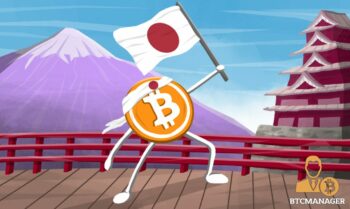
2018-10-18 20:09 |
Japan has remained at the forefront of digital currency innovation. One of the world’s biggest Bitcoin exchange, Mt Gox, was based in Japan. However, after the $460-million Bitcoin theft and bankruptcy filing by the exchange in 2014, Japan didn’t immediately grow defensive. Instead, it formed new regulations that helped in the growth of the small crypto market. In a new blog post, Ripple explained Japan’s emergence and its consistency in the crypto market.
Ban Is Not an Option in JapanRipple detailed how some policy makers considered Mt Gox as a sign that crypto trading should be banned. In a three-part blog series, Ripple’s Sagar Sarbhai will make a case for digital currency regulations. The posts will focus on supportive regulatory structures in Japan, Abu Dhabi, and Thailand by forward-thinking policy makers who are driving crypto demand while protecting consumers from harm. The first of the three parts focuses on Japan.
Emerging economies like China and India have adopted a negative stance on cryptos but not Japan. Consequently, over half of the cryptocurrency trade in the world takes place in Japan. Countries that have complex FX markets have a problem in grasping the scope of digital currencies. One of them is India, whose central bank, the Reserve Bank of India, recently submitted an affidavit to the country’s Supreme Court saying that Bitcoin cannot be considered a currency because of the existing Foreign Exchange Markets Act.
Ripple’s Three-Pronged Approach to RegulationSarbhai comments on Ripple’s commitment to regulation, writing:
“Ripple believes in collaborating with regulators and working within the existing financial system … We believe regulation will help organizations use digital assets to develop innovative solutions, while also protecting consumers who use these services or invest in digital asset markets.”
Ripple advocated a three-pronged approach to regulation based on use cases and considers Japan a good example of how this approach works. The three actions are as follows:
“Recognize that bans or ‘one size fits all’ approaches can stifle innovation.” “Virtual currency use case: address risk through a licensing framework.” “Liquidity tool use case: provide guidance for banks to leverage digital assets.”Ripple also considers important “an approach that balances risk while promoting innovation.” Japan allows digital currency exchanges to be fully licensed in the country and considers Bitcoin a legal tender, which helps in balancing regulation and innovation. The blockchain company believes that though there are some negatives to this approach, there are many positives too that present a glorious example for other, more conservative, countries to follow.
Ripple Explains How Japan Dominates the Digital Asset Market was originally found on [blokt] - Blockchain, Bitcoin & Cryptocurrency News.
origin »Bitcoin price in Telegram @btc_price_every_hour
Japan Brand Coin (JBC) на Currencies.ru
|
|






















